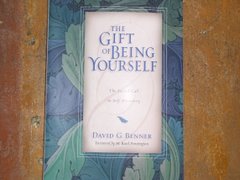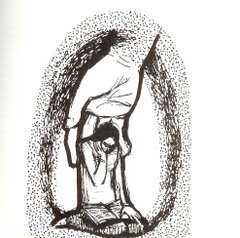Holy Bible, human Bible (1)
 Sometimes, the title of certain books just catches my attention immediately. The title "Holy Bible, human Bible" by Gordon Oliver did, a few days ago. The subtitle reads "Questions pastoral practice must ask". The title of each of the eight chapters is a question. That intrigued me, because I have personally found that Scripture sometimes raises more questions for people than it gives comfortable answers. And that is not easy for Christians because we prefer to have our faith all mapped out - in that way, we believe that we can share our faith more effectively. But therein lies the pitfalls of fundamentalism and the limited appreciation of what the Bible as God's Word is all about.
Sometimes, the title of certain books just catches my attention immediately. The title "Holy Bible, human Bible" by Gordon Oliver did, a few days ago. The subtitle reads "Questions pastoral practice must ask". The title of each of the eight chapters is a question. That intrigued me, because I have personally found that Scripture sometimes raises more questions for people than it gives comfortable answers. And that is not easy for Christians because we prefer to have our faith all mapped out - in that way, we believe that we can share our faith more effectively. But therein lies the pitfalls of fundamentalism and the limited appreciation of what the Bible as God's Word is all about.What is a Bible? is the title of the first chapter. And what Oliver says struck a chord immediately: "many Christians appear not to be surprised at all by what they read in the Bible....the Bible is read with the expectation that it will support the cultural ways of being Christian that the churches commend. But the Scriptures are much more like a caged animal, restless to be set free to disrupt and challenge the assumptions of its hearers and readers, than like a pet animal that has become a kind of lifestyle accessory for Christians who happen to value it. To press the illustration, when it became caged the restless animal lost its ability to communicate. When it is set free a transformation occurs. This 'animal' can talk after all. When the Bible talks, and you get used to its languages and accents, you begin to recognise the disturbing, attracting speaking of God."
Oliver say that a pre-critical approach (that is, taking the text in a quite literal way, at its face value) can lead to social and political exclusion going unchallenged or unreflected on by some Christian groups. Reading the Bible 'critically' (using methods of research, taking into account historical background, source documents etc) can clear away some of the spiritual and ecclesiastical baggage, but is insufficient for the Bible is not just religious literature but Holy Scripture.
The Bible is foundational for faith and is basic to the identity of Christians as Christians. This foundation is not so much immovable but is much more open, dynamic, lively, multi-vocal as it speaks of the one God and the things of God. As God's Word, "the disruptive givenness of the Bible must be received as the call to explore the mystery of life with God rather than merely ground rules for well behaved believers. The relationship between the Bible and the church must be more like an inspiring and argumentative tussle than a pious status quo. The Canon of Scripture is likely to be challenging as a conversation partner. The fact that Scripture speaks with many voices means that engaging with Scripture is much more like engaging in conversation than making use of a 'thing' like some kind of tool."
Oliver ends the first chapter by asking why it is that congregations are 'protected' from this more messy but real and lively interaction with the Bible. Why is it that answers are 'presented' rather than questions encouraged? Why might we be insecure about the fact that the Bible invites conversation, with a God of mystery, as much as he is a God of revelation?






+223.jpg)


























No comments:
Post a Comment